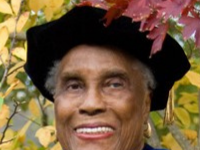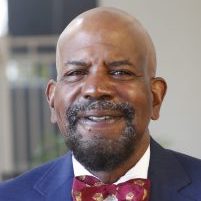 A new study by Cato T. Laurencin and Marsha Murray of the University of Connecticut Health Center in Farmington, warns of an impending crisis in the number of Black men pursuing careers in medicine.
A new study by Cato T. Laurencin and Marsha Murray of the University of Connecticut Health Center in Farmington, warns of an impending crisis in the number of Black men pursuing careers in medicine.
The data shows that the number of Black men entering medical school is no greater than it was 35 years ago. Today, African American men make up just 2.8 percent of all medical school applicants. Of all African American medical school applicants, men make up only 38 percent of the total. The research also found that when Black men have their application to medical school rejected, they are less likely than their White peers to reapply at a later date.
The authors write “the absence of Black males in medical school represents an American crisis that threatens efforts to effectively address health disparities and excellence in clinical care. The creation of a diverse medical workforce is crucial to quality healthcare.
 Lead author Cato Laurencin adds that “you cannot have a great medical center without the presence of Black and other diverse doctors.”
Lead author Cato Laurencin adds that “you cannot have a great medical center without the presence of Black and other diverse doctors.”
Dr. Laurencin is the chief executive officer of the Connecticut Institute for Clinical and Translational Science, University Professor, and director of the Institute for Regenerative Engineering at the University of Connecticut. He is the former dean of the School of Medicine at the University of Connecticut.
Dr. Laurencin is a graduate of Princeton University, where he majored in chemical engineering. He is a magna cum laude graduate of Harvard Medical School and holds a Ph.D. in biochemical engineering and biotechnology from the Massachusetts Institute of Technology.
The full study, “An American Crisis: The Lack of Black Men in Medicine,” was published in the Journal of Racial and Ethnic Health Disparities. It may be accessed here.











Is medicine really worth the trouble any more? You have to go through 16 years of education and then at least another 3 years of residency in which your paid peanuts and worked like a slave. Then, you become a full-fledged physician with little autonomy and have an insurance company telling you how to doctor. Oh, and all that educational debt from undergraduate and medical school has to be considered as well. Maybe it’s a good thing black men aren’t bothering with medicine. Then, on the other hand, like most things that require delayed gratification, black men come up short. Medicine is the ultimate “delaying gratification” profession, and that black men represent so few of the current medical school applicants and students is telling about the “get rich quick” mentality of a lot of black men. You ever notice blacks are always overrepresented in the most dangerous occupations. Two of the police wounded in that Alexandria, VA. Republican baseball practice were black. By the way, you know white folk have it good when they’ve got the main people their policies are going to hurt (black and other poor and middle class people) risking their lives for them. One of the two prison guards murdered in GA. when two convicts escaped was black. You don’t hear of many doctors being murdered.